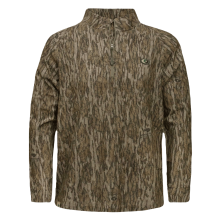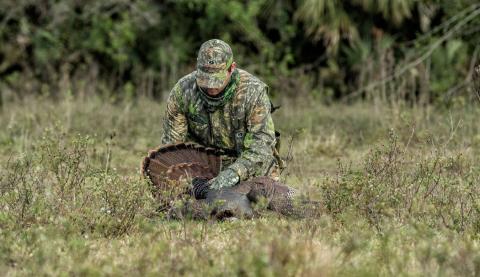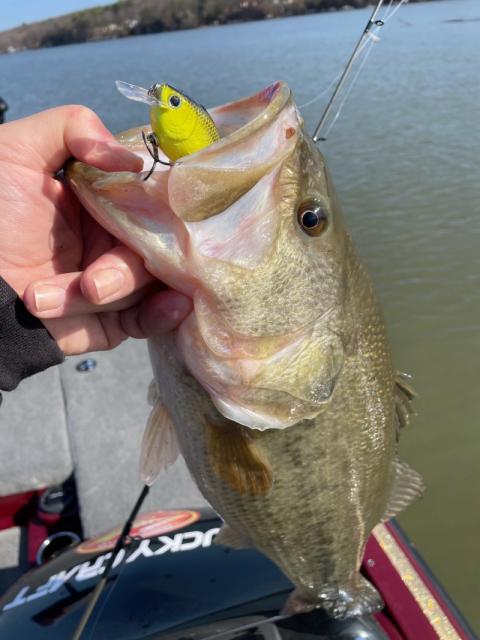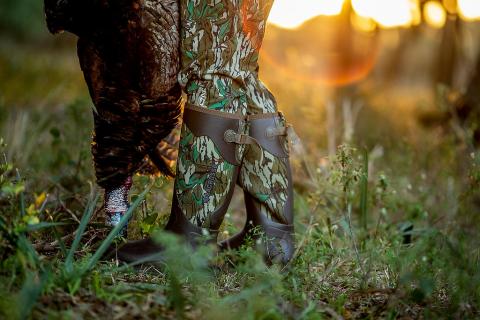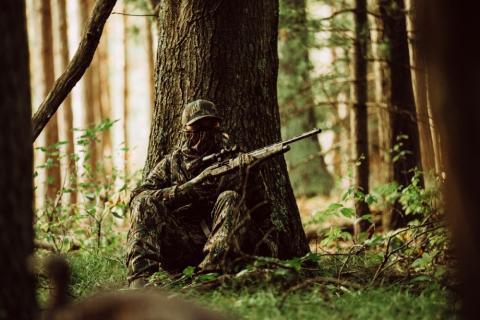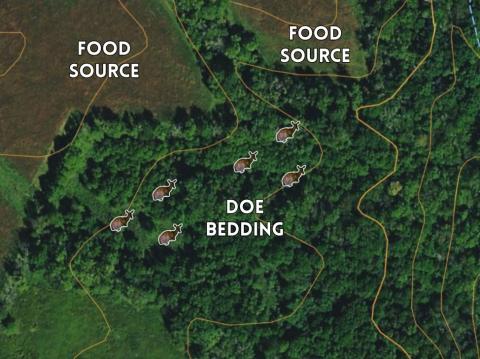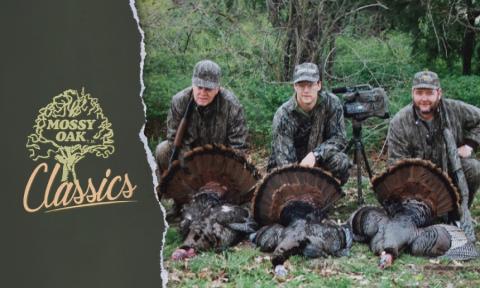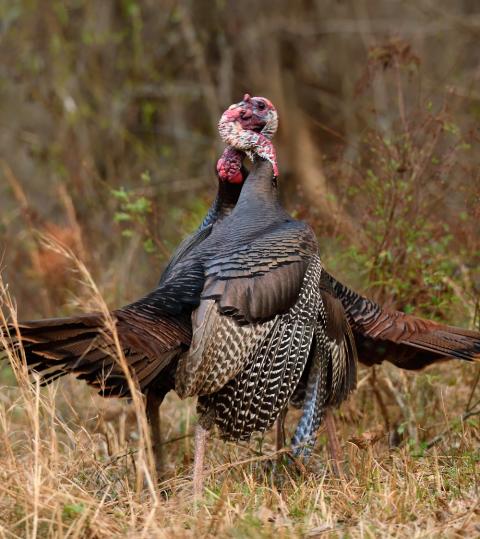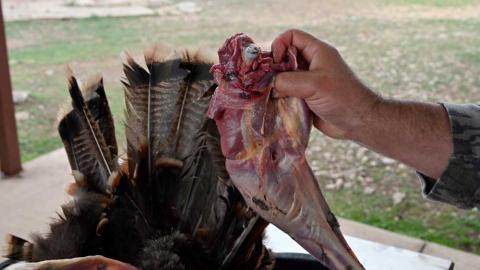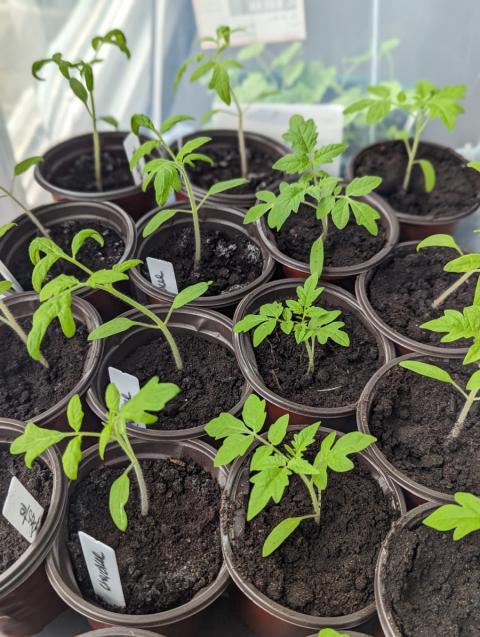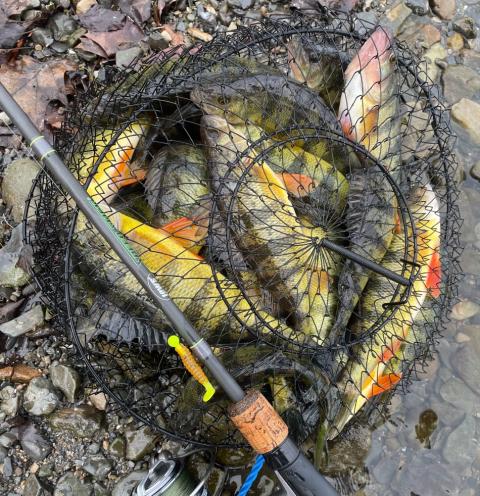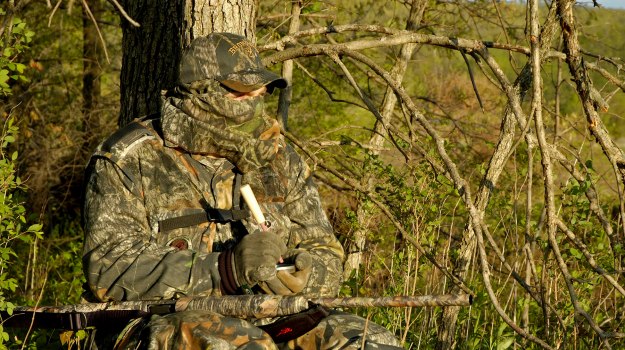
Editor’s Note: Ronnie “Cuz” Strickland, Mossy Oak’s senior vice president of television and related media, probably has hunted turkeys as long and as hard as any man alive. He hunts for his own enjoyment, but in the early days of Mossy Oak, he was a cameraman, field producer, guide and caller. One of Cuz’s greatest joys in life is calling up a turkey for someone else to take. Cuz has hunted turkeys all over the world and in most states. When Cuz talks turkey, we all listen.
The turkey hunter’s ears will find more turkeys than his eyes will. But you can’t hear a turkey gobble, especially if he’s a long way off, if you’re not being extremely quiet. A good friend of mine, Tom Kelly, explained it best when he said, “You’ve got to cause your whole body to become an ear.” I’ve hunted with thousands of turkey hunters over the years. Many times after I call or they call, they’ll be moving their feet or turning around trying to listen in different directions. Often, I have to tell my hunters to be quiet, so we can hear a gobbler. Don’t just listen for that booming gobble, but also listen for that gobble that may be only barely audible.
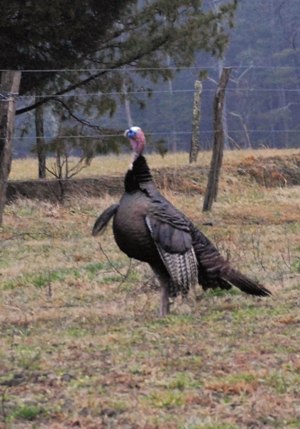 Another sound to listen for is turkey’s drumming. Oftentimes, when a turkey isn’t going to gobble, he’ll still strut and drum. The drumming sound sounds like an 18 wheeler shifting gears. It may be a very-low sound that’s barely audible. The turkey will drum when he won’t gobble, because his hens can hear that drumming sound and come to him. Also, if you’re hunting an area that has quite a bit of hunting pressure, many times, the turkey only will drum and not gobble to call up his hens. If you’re hunting regions with numbers of predators, like coyotes and bobcats, the turkey will drum, because the predators can’t hear that drumming from as far away as they can a gobble. Hunters who learn and practice the art of being quiet will pinpoint and hear more turkeys.
Another sound to listen for is turkey’s drumming. Oftentimes, when a turkey isn’t going to gobble, he’ll still strut and drum. The drumming sound sounds like an 18 wheeler shifting gears. It may be a very-low sound that’s barely audible. The turkey will drum when he won’t gobble, because his hens can hear that drumming sound and come to him. Also, if you’re hunting an area that has quite a bit of hunting pressure, many times, the turkey only will drum and not gobble to call up his hens. If you’re hunting regions with numbers of predators, like coyotes and bobcats, the turkey will drum, because the predators can’t hear that drumming from as far away as they can a gobble. Hunters who learn and practice the art of being quiet will pinpoint and hear more turkeys.
I like to buddy hunt, I like to guide, and I like to video hunters turkey hunting. I love the camaraderie of a turkey hunt with a good friend or a new friend, but there’s a time to talk and a time to be quiet. When we’re listening for turkeys or going to a turkey, that’s the time to be quiet. Many times, when you’re walking down a logging road, a trail or a dried-up creek bed, if you’re extremely quiet, you’ll hear a turkey gobble that you won’t hear if you’re talking or making too much noise, as you walk through the woods. Turkey hunting is a listening game. Turkeys give away their positions by gobbling and drumming. If you can hear the turkey gobble or drum, more than likely, you won’t take that turkey, or you’ll spook that turkey as you move through the woods. This spring, learn to be as quiet as possible and listen for the sounds that the wild turkey makes.
There are also other sounds that can give away the location of a turkey. Squirrels will bark at a turkey, and blue jays and crows will scream at turkeys. So, learn to identify as many of the critters as you can in the woods by the sounds they make, and I promise that you will find and take more turkeys. Mossy Oak camouflage can help you become invisible in the woods, but it can’t cause you to be silent in the woods. So, always wear your Mossy Oak camo, and remember this word “Hush.”







